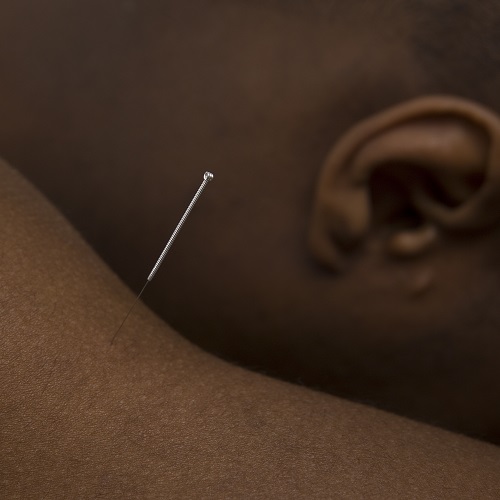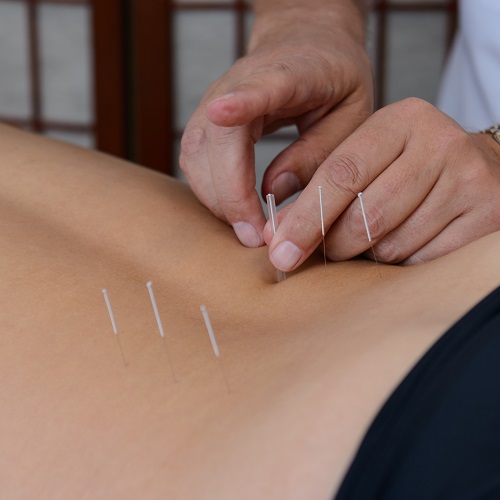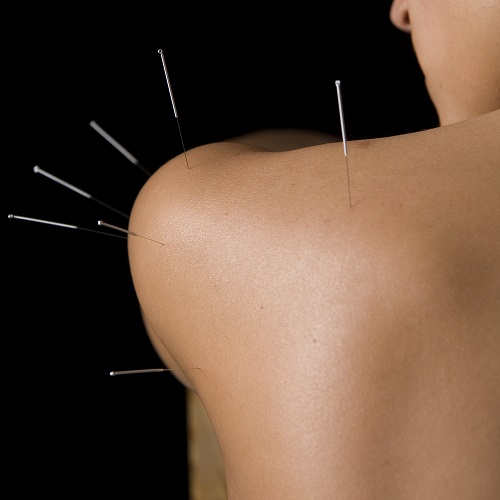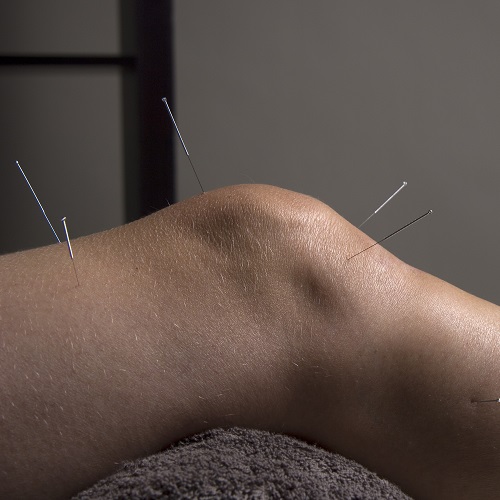Let’s start with a round-up the 3 studies that hit the top spots the day this post was written, in a Google Scholar search for “acupuncture research”:
New Research:
• Effectiveness of acupuncture for anxiety among patients with Parkinson disease: a randomized clinical trial. (Fan et al, 2022)
• Qi, L.Y., Yang, J.W., Yan, S.Y., Tu, J.F., She, Y.F., Li, Y., Chi, L.L., Wu, B.Q. and Liu, C.Z., 2022. Acupuncture for the Treatment of Diarrhea-Predominant Irritable Bowel Syndrome: A Pilot Randomized Clinical Trial. JAMA Network Open, 5(12), pp.e2248817-e2248817
• Yu, G., Chen, L., Huang, H., Nie, B. and Gu, J., 2022. Research Trends of Acupuncture Therapy on Fibromyalgia from 2000 to 2021: A Bibliometric Analysis. Journal of Pain Research, pp.3941-3958
About the research: It is worth noting that in research, randomised controlled studies (RCT) which are published in a peer-reviewed and reputable journal, are the most reliable in terms of quality of evidence as they compare an intervention with a control group and and these are matched and blinded to which intervention they receive. Next up, a systematic review or meta analysis of numerous such studies is the best way of seeing the overall picture of the state of the evidence by aggregating a number of RCTs together in a scientific manner. The n= figure tells you how many people were participants in the study, and a larger study is able to more powerfully predict whether an intervention is effective, as the statistics are more robust; smaller studies can be pilots, or give ideas of trends to be explored in later ones.

Effectiveness of Acupuncture for Anxiety Among Patients With Parkinson Disease – A Randomized Clinical Trial
Approximately a third of Parkinson’s patients experiences anxiety symptoms, which negatively affects upon their quality of life. Fan et al (2022) examined 64 Parkinson’s patients through a double-blind, randomised controlled trial. They compared real acupuncture (RA) with sham (SA) as a control group. Scores on anxiety measures (HAM-A; UPDRS; PDQ-39), Parkinson’s disease rating scale, and measures of blood levels of cortisol (stress hormone) and adrenocorticotropic hormone (related to cortisol release) were evaluated before and after the treatment course, and repeated 8 weeks after the end of the treatment course.
Results: Both groups showed clinical improvements in anxiety by the end of the treatment, but only the RA group maintained an improvement after 8 weeks. This suggests that sham acupuncture may produce short-term effects based on expectation, while real acupuncture has a longer-lasting effect.
The researchers observed that the RA group had lower ATCH levels than the SA group. potentially confirming that acupuncture can reduce ACTH levels in the blood and alleviate stress hormone levels and anxiety: “The serum ACTH levels in the RA group were lower than in the SA group. It may be preliminarily confirmed that acupuncture can reduce the level of ACTH in serum, a finding that is in line with previous results, where the authors have proved that acupuncture can alleviate increased stress hormone levels and mitigate anxiety“. The previous finding they mention to Seo et al, (2021), another recent study using an animal model to look at the effects acupuncture has on specific neurotransmitters and hormones in a stress model.
Thoughts: The trend in recent research is to not only compare patient or practitioner-rated outcomes between groups but also to include objective measures, such as blood samples, biomedical measures, and brain scans, linking the subjective and objective aspects of the patient’s experience and the researcher’s observations. This type of research is valuable and provides a more comprehensive understanding. We look forward to more of this type of research. The present study has some limitations due to its small size, and the researchers recommend a larger, multi centre study for a broader perspective.

Acupuncture for the Treatment of Diarrhea-Predominant Irritable Bowel Syndrome: A Pilot Randomized Clinical Trial
Qi et al. (2022) aimed to examine the biological mechanism behind acupuncture’s potential benefit for IBS patients, which they hypothesised to be by reducing “visceral hypersensitivity” and regulating the gut-brain axis. The study was a pilot, multi-centre randomized controlled trial (RCT) involving 90 participants across 4 Chinese hospitals, who were divided into three groups: specific acupuncture (using real points), non-specific acupuncture, and sham acupuncture. All participants received 12 acupuncture sessions over 4 weeks.
The researchers compared abdominal pain scores and stool type to evaluate the results.
Findings: Both the specific and non-specific acupuncture groups demonstrated significant improvement in IBS-D symptoms from the baseline. There was a 20% difference between the specific acupuncture group and the sham group. The researchers suggested conducting a larger, multi-centre trial for further investigation.
Thoughts: The use of non-specific treatment in this study is noteworthy as it raises questions about the appropriate comparison to active treatment. Although using real points even out of context still has a noticeable effect, it is important to understand which specific points were considered non-specific and yet still showed an impact within the acupuncture model, as each point has numerous connections and influences.
This information could help differentiate the placebo effect, which is present to some extent in all types of treatments, including Western and drug treatments. The distinction between placebo and genuine effects is usually more apparent after the end of treatment, as evidenced by a follow-up review a few weeks later. As seen in this study, the real acupuncture group using specific points had a more lasting outcome.
A large number of trials have looked at IBS and acupuncture in the past, with promising results. Shaftesbury Clinic’s website has a page about this specifically
The outcomes of a number of large, systematic reviews is expected very soon, the protocols for which came out in 2020/2021 (Li et al, 2021, 2021b; Guo et al, 2020), which will to add to the research and be of interest.

Research Trends of Acupuncture Therapy on Fibromyalgia from 2000 to 2021: A Bibliometric Analysis
Yi and co-authors (2022) conducted a review of the growing trend of research studies on fibromyalgia. They analyzed a total of 868 studies published between 2000 and 2021 and found an increasing trend in the number of studies conducted. The United States was identified as the most active country in terms of conducting research studies on fibromyalgia, which was unexpected, as one might expect a high number of studies to originate from China.
The studies reviewed by the researchers covered a wide range of topics, including the efficacy of acupuncture and electroacupuncture, long-term efficacy, and possible mechanisms of action through animal models. The Journal of Pain was the top publisher of these studies, with JAMA and the Annals of Internal Medicine close behind.
It’s useful to examine the scope of existing literature and identify areas where further research is necessary when considering the current state of the research field. This helps to highlight any gaps in the current knowledge and determine what needs to be done to address these gaps and build upon what has already been accomplished.
In terms Fibromyalgia, and the published literature on it; there are numerous RCTs and at least 3 systematic reviews, Shaftesbury Clinic’s website has an informational article on this.

What is on the horizon?
To stay informed about new research in acupuncture, a good strategy is to monitor Google Scholar using the search term “acupuncture protocol.”
Here are the top 3 upcoming studies to look out for in the near future:
The efficacy and safety of acupuncture for depression-related insomnia: protocol for a systematic review and meta-analysis (Hu et al, 2022). In the Journal of Pain Research, the authors aim to explore the correlation between depression and insomnia, and the potential role of acupuncture. They will conduct a comprehensive analysis of the efficacy and safety of acupuncture for depression-related insomnia by synthesizing data from numerous RCTs. The analysis will be based on a search of nine databases using the Cochrane database. With prior evidence supporting acupuncture in the treatment of depression, including a large multi-centre UK study (MacPherson et al, 2017), this area holds great promise for future research.
Efficacy and safety of acupuncture in the treatment of foot drop in post-stroke: A protocol for systematic review and meta-analysis (Gao et al, 2022). are exploring the topic of foot-drop, a widespread issue resulting from strokes and causing the risk of falls and injuries. The study aims to fill the gap of lack of systematic review in this area by utilizing the Cochrane Register of Controlled Trials along with 7 other databases to analyze the existing evidence.
Efficacy of acupuncture in subpopulations with functional constipation: A protocol for a systematic review and individual patient data meta-analysis (Chen et al, 2022). The researchers aim to consolidate the data from various RCTs on acupuncture’s application in a specific area of interest, as there has been a substantial amount of literature in this promising field.
It’s important to keep in mind that synthesizing data in this manner serves not only to determine the effectiveness of acupuncture, but also to uncover insights about which acupuncture points, techniques, and approaches may be most effective. This approach also allows us to identify any gaps in our understanding that future research can explore.
Important to know: Chronic health conditions should be addressed under direct medical supervision of your GP or consultant, and acupuncture would be an adjunct or complement to usual care – we advise that you let you doctor know when you use this approach.
References:
Chen, C., Liu, J., Liu, B., Cao, X., Liu, Z., Zhao, T., Lv, X., Guo, S., Li, Y., He, L. and Ai, Y., 2022. Efficacy of acupuncture in subpopulations with functional constipation: A protocol for a systematic review and individual patient data meta-analysis. PloS one, 17(4), p.e0266075.
Fan, J.Q., Lu, W.J., Tan, W.Q., Liu, X., Wang, Y.T., Wang, N.B. and Zhuang, L.X., 2022. Effectiveness of acupuncture for anxiety among patients with Parkinson disease: a randomized clinical trial. JAMA Network Open, 5(9), pp.e2232133-e2232133.
Gao, Y., Gang, X., Yuan, Y., Yin, K. and Gong, X., 2022. Efficacy and safety of acupuncture in the treatment of foot drop in post-stroke: A protocol for systematic review and meta-analysis. Medicine, 101(40), p.e30994.
Guo, J., Xing, X., Wu, J., Zhang, H., Yun, Y., Qin, Z. and He, Q., 2020. Acupuncture for Adults with Diarrhea-Predominant Irritable Bowel Syndrome or Functional Diarrhea: A Systematic Review and Meta-Analysis. Neural plasticity, 2020.
Hu, H., Li, Z., Cheng, Y. and Gao, H., 2022. The efficacy and safety of acupuncture for depression-related insomnia: protocol for a systematic review and meta-analysis. Journal of Pain Research, pp.1939-1947.
Li, H., Chen, Y., Hu, Z., Jiang, J., Ye, J., Zhou, Y., Yu, Z. and Tang, H., 2021a. Effectiveness of acupuncture for anxiety and depression in irritable bowel syndrome: A protocol for systematic review and meta-analysis. Medicine, 100(8).
Li, H., Chen, Y., Hu, Z., Jiang, J., Ye, J., Zhou, Y., Yu, Z. and Tang, H., 2021b. Effectiveness of acupuncture for anxiety and depression in irritable bowel syndrome: A protocol for systematic review and meta-analysis. Medicine, 100(8).
MacPherson, Hugh, Andrew Vickers, Martin Bland, David Torgerson, Mark Corbett, Eldon Spackman, Pedro Saramago et al. “Acupuncture, Counselling or Usual Care for Depression (ACUDep): a randomised controlled trial.” In Acupuncture for chronic pain and depression in primary care: a programme of research. NIHR Journals Library, 2017.
Qi, L.Y., Yang, J.W., Yan, S.Y., Tu, J.F., She, Y.F., Li, Y., Chi, L.L., Wu, B.Q. and Liu, C.Z., 2022. Acupuncture for the Treatment of Diarrhea-Predominant Irritable Bowel Syndrome: A Pilot Randomized Clinical Trial. JAMA Network Open, 5(12), pp.e2248817-e2248817.
Seo, S.Y., Bang, S.K., Kang, S.Y., Cho, S.J., Choi, K.H. and Ryu, Y.H., 2021. Acupuncture Alleviates Anxiety and 22-kHz Ultrasonic Vocalizations in Rats Subjected to Repeated Alcohol Administration by Modulating the Brain-Derived Neurotrophic Factor/Corticotropin-Releasing Hormone Signaling Pathway. International Journal of Molecular Sciences, 22(8), p.4037
Yu, G., Chen, L., Huang, H., Nie, B. and Gu, J., 2022. Research Trends of Acupuncture Therapy on Fibromyalgia from 2000 to 2021: A Bibliometric Analysis. Journal of Pain Research, pp.3941-3958.
